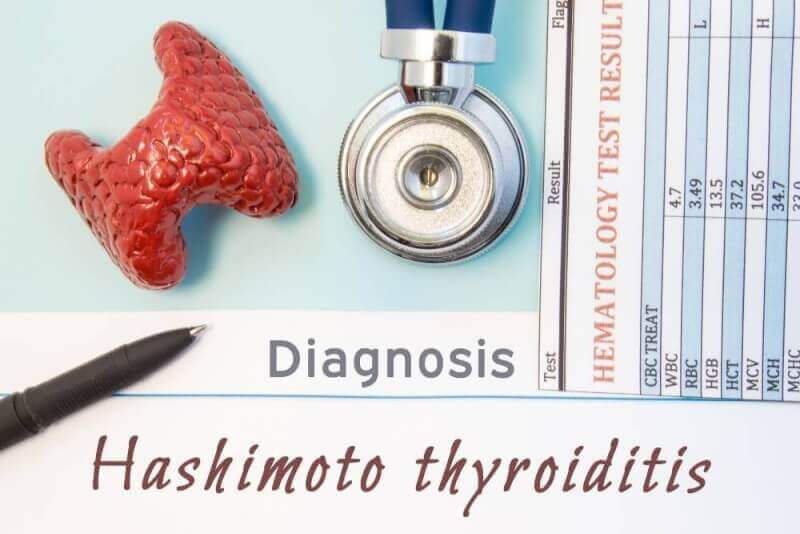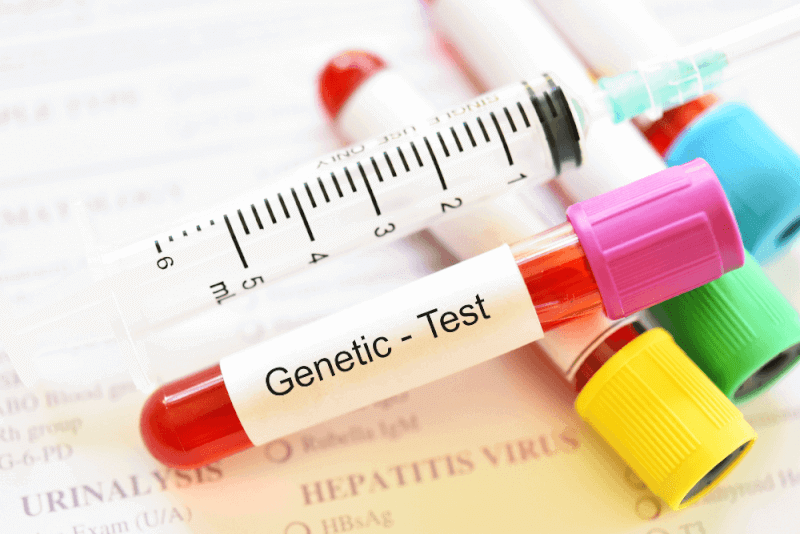What is Hashimoto's Disease?
In order for all metabolic systems in the body to function properly and maintain balance, hormones must be secreted correctly and their levels must always be within certain ranges. For example, one of the most important hormonal glands in the human body is the thyroid gland, which is located just below the neck and resembles a butterfly. As an endocrine gland, the thyroid gland is responsible for the secretion of thyroid hormone and is particularly important for energy balance and the regular functioning of organs such as the brain and heart.
When there is a certain irregularity in the functioning of the thyroid gland, one of the most important diseases that can be encountered is Hashimoto's disease. Hashimoto's disease, also known as chronic lymphocytic thyroiditis, causes problems in the functioning of the thyroid gland. It is so named because it was first described by the Japanese scientist Akira Hashimato in 1912.
What are the Symptoms of Hashimoto's?
Hashimoto's, a thyroid disease, is a type of thyroid disease that occurs when the thyroid gland is seen as foreign by the immune mechanism. In this case, hyperthyroidism, i.e. an excess of thyroid hormones in the body, or hypothyroidism, i.e. thyroid hormone insufficiency, is usually caused. In a body with this problem, the immune system produces defense substances such as anti-TPO antibody and anti-thyroglobulin antibody to destroy the thyroid gland, which it sees as foreign. In this case, the thyroid gland suffers major damage.
As the thyroid gland shrinks with these problems, hormone insufficiency begins to be seen. In the first period of the disease, one of the most important symptoms is goiter and high levels of antibodies in the blood, but over time, thyroid insufficiency develops. However, the visible complications that come to the fore are also among the many different points;
- Frequent cramps,
- Chilling quickly and easily,
- Change in tone of voice,
- A tired state,
- Constipation discomfort,
- Frequent weight gain,
- There is dryness of the skin.
In fact, since these symptoms can be seen in many diseases, symptoms of the disease also include low pulse rate, slow movements, forgetfulness, slowed speech, hair loss, loss of appetite, enlargement of the tongue, depression and menstrual irregularities.
In hypothyroidism, which occurs when Hashimoto's disease reaches an advanced level, problems such as fluid accumulation in the lungs and heart membranes, milk coming from the breasts outside pregnancy and sexual reluctance can be seen. Generally, cholesterol levels are high in patients with Hashimoto's disease and cardiovascular diseases can therefore be seen.
What Causes Hashimoto's?
While Hashimoto's is more common in some risk groups from a very young age, it can occur due to many different diseases such as smoking, pregnancy, genetic predisposition, type 1 diabetes, celiac disease, hepatitis rheumatoid, arthritis, lupus, especially in later ages. In addition, diseases such as vitiligo and pernicious anemia or admission disease can also put a person at risk for Hashimoto's.
Hashimoto's disease is usually 8 times more common in women than in men. Although it can occur at any age, it is most common in young and middle-aged people. Women who have had a stillbirth or miscarriage, people with high prolactin levels, people with high cholesterol levels and people with anemia of unknown cause are at risk of Hashimoto's.
How is Hashimoto's Diagnosed?
It is normal for TSH and thyroid hormone levels to be monitored continuously in routine blood tests. However, when patients present with reasons such as fatigue, hair loss, weight gain, physicians first listen to the patient's history for the diagnosis of Hashimoto's, then perform a physical examination and then perform some tests.
For the diagnosis of Hashimoto's, the levels of TSH, T3 and T4, i.e. thyroid hormones, are examined in the blood. Ultrasound is used to examine the structure and size of the thyroid gland. The most important test is to measure anti-TPO and anti-thyroglobulin antibody levels in the blood and check for elevated levels.
All these tests make it possible to make a diagnosis and determine the stage of the disease. Because in the first stage, hormone levels may be normal despite high antibodies, while hormone irregularities may occur in the later stages. While it is thought that hypothyroidism will occur in many patients after Hashimoto's thyroiditis, sometimes hyperthyroidism may occur in short periods.
What are Hashimoto's Treatment Methods?
After the diagnosis is made based on the symptoms, the most important point is first of all to eliminate the problem of thyroid hormone insufficiency, i.e. hypothyroidism. At this point in terms of treatment, specialist physicians initiate thyroid hormone supplementation, while the TSH hormone can be lowered to normal limits. During the first few months, the medicine is used at different levels to find the right dose.
After the TSH hormone level is reduced to a regular range, treatment should continue with regular controls for up to 6 months. During this period, the patient's weight gain, symptoms of the disease and nutrition are monitored and the exact dosage of medication is determined.
Patients should be checked every six months, as it is sometimes possible for a thyroid nodule to form due to Hashimoto's disease. The treatment must be strictly adhered to regularly, especially in women during pregnancy. If problems such as shortness of breath and difficulty swallowing occur, the thyroid gland can be removed by surgery.
How Can Hashimoto's Patients Lose Weight?
Symptoms of Hashimoto's disease include a tendency to gain weight. Because sometimes thyroid hormone can be excessive and sometimes low. This leads to an increase in appetite, which in turn leads to a high likelihood of weight gain.
Hashimoto's patients are also very likely to suffer from permanent hypothyroidism. However, in cases of temporary hormone elevation, weight loss problems may occur with problems such as inability to lose excess weight, desire for more sleep, desire to remain inactive, irregular menstruation and constipation.
In spite of all the problems, when patients with Hashimoto's tend to change their behavior by being aware of their disease, they may exhibit more resistance to the problem of weight gain. In this respect, in order to lose weight, hypothyroidism will first need to be brought to the right level in the right way and with good medication. Then a conscious dietary behavior and more exercise should be preferred.
How Should Hashimoto's Patients Eat?
Although there is no clear diet program in Hashimoto's disease, it is important to eat healthy. According to some beliefs, excess iodine causes harm, while according to some beliefs, treatment is thought to be provided by selenium intake. Although selenium may have the effect of reducing antibody levels, it does not have a significant effect in thyroid hormone deficiency.
While a gluten-free diet is often recommended during the period of Hashimoto's disease, the most important point is that patients taking medication for hypothyroidism should take the medication on an empty stomach. Foods such as yogurt, milk and wholemeal bread, which may affect the absorption of the drug, should not be consumed at the same meal.










